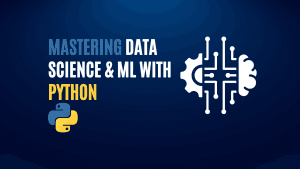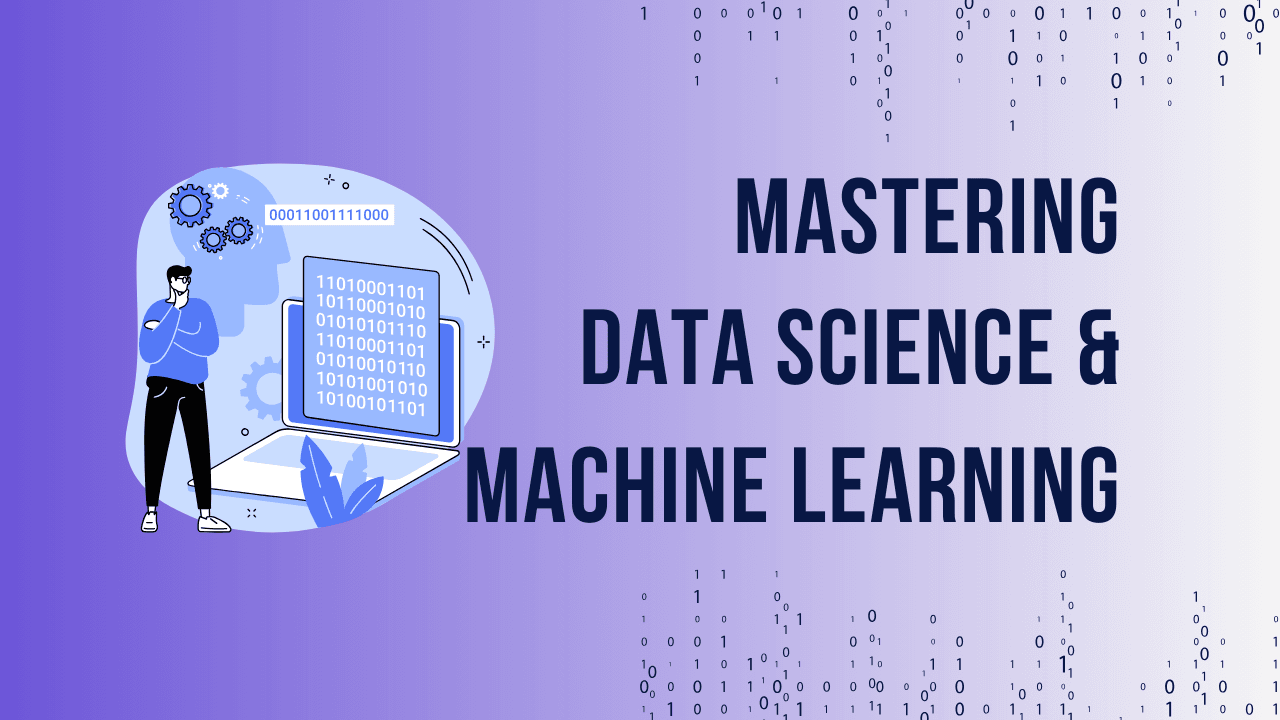Ready to take you Data Science and Machine Learning skills to the next level? Check out our comprehensive Mastering Data Science and ML with Python course.
Table of Contents
Toggle1. Introduction to Data Science Interviews
A career in data science can be extremely rewarding, but before you can start working as a data scientist, you must first ace the interview process. In a typical data science interview, you’ll be asked questions that test your technical expertise, problem-solving skills, and how well you can handle real-world data challenges. Data science interviews are often comprehensive, covering everything from statistical concepts to machine learning algorithms and data wrangling.
What to Expect in a Data Science Interview
The data science interview process usually involves multiple rounds, each designed to assess a different skill set. You may be asked to complete a coding challenge, analyze a dataset, or discuss past projects you’ve worked on. Depending on the company, the focus of the interview could be more technical, analytical, or business-oriented.
Skills Required for Data Science Roles
- Programming: Strong command of Python or R is essential.
- Mathematics and Statistics: Understanding of probability, distributions, and hypothesis testing.
- Machine Learning: Knowledge of supervised and unsupervised learning techniques.
- Data Wrangling: Ability to clean, process, and manipulate data.
- Communication: Ability to explain complex concepts in a simple manner.
Ready to take you Data Science and Machine Learning skills to the next level? Check out our comprehensive Mastering Data Science and ML with Python course.
2. General Data Science Interview Format
Data science interviews typically have a structured format designed to assess various skills. While the format may vary from one company to another, here’s a general breakdown.
Types of Interviews
- Behavioral Interview: Focuses on how you handle work situations and challenges.
- Technical Interview: Tests your programming, statistical, and analytical skills.
- Case Study Interview: Presents you with a real-world data problem to solve.
- Coding Interview: Requires you to write clean, efficient code to solve specific problems.
Understanding the structure of these interviews can help you prepare effectively for each round.
Ready to take you Data Science and Machine Learning skills to the next level? Check out our comprehensive Mastering Data Science and ML with Python course.
3. Common Data Science Interview Questions
The following are some commonly asked general questions in data science interviews:
- “Tell me about a data science project you’ve worked on.”
- “How do you approach solving data problems?”
- “What are the most challenging aspects of data science?”
These general questions are designed to assess how well you understand data science and how you approach problem-solving.
How to Answer General Data Science Questions
When answering, provide specific examples from your past projects, explaining the tools and methods you used. Demonstrate that you understand the business context and the technical aspects of data science.
Ready to take you Data Science and Machine Learning skills to the next level? Check out our comprehensive Mastering Data Science and ML with Python course.
4. Top Technical Questions in Data Science
Technical questions form a major part of data science interviews, and they are designed to test your deep knowledge of the subject.
Key Topics Covered in Technical Questions
- Statistics: Hypothesis testing, p-values, confidence intervals.
- Machine Learning: Differences between classification and regression, choosing the right algorithm.
- Data Wrangling: Cleaning and transforming raw data.
- Data Visualization: Interpreting charts and graphs, using tools like Power BI or Matplotlib.
Ready to take you Data Science and Machine Learning skills to the next level? Check out our comprehensive Mastering Data Science and ML with Python course.
5. Machine Learning Questions
Machine learning is one of the most important areas of data science. In interviews, you’re likely to be asked questions about the principles of machine learning and common algorithms.
Important ML Algorithms
Some of the commonly asked machine learning interview questions are related to algorithms like:
- Linear Regression
- Decision Trees
- K-Nearest Neighbors
- Random Forest
Interviewers may ask you to explain how these algorithms work, their advantages, and when to use them.
Ready to take you Data Science and Machine Learning skills to the next level? Check out our comprehensive Mastering Data Science and ML with Python course.
6. Data Wrangling and Preprocessing
Before any data can be analyzed, it must first be cleaned and processed. This is known as data wrangling, and it’s a crucial skill for data scientists.
Techniques to Clean and Process Data
You may be asked about techniques like:
- Removing Duplicates
- Handling Missing Data
- Normalizing and Standardizing Data
These techniques ensure that your data is clean, reliable, and ready for analysis.
7. SQL and Database Management
SQL remains a foundational tool for working with databases, and you will likely face SQL-related questions in your data science interview.
Common SQL Queries in Interviews
You might be asked to write SQL queries that perform the following tasks:
- Selecting Data from Multiple Tables
- Joining Tables
- Filtering Data
- Aggregating Results
8. Python and R in Data Science
Python and R are the most popular programming languages used in data science, and knowing when to use which can be a valuable skill.
Common Programming Questions
In interviews, you may be asked to solve problems using Python or R. Some common programming tasks include:
- Data Manipulation
- Writing Functions
- Looping and Conditional Statements
9. Statistics and Probability Questions
Statistics and probability form the backbone of data science. Expect questions that test your understanding of distributions, probability theory, and statistical tests.
Key Statistical Concepts
- Normal Distribution
- T-tests
- ANOVA
- Bayes’ Theorem
Our Students Testimonials:
10. Statistics and Probability Questions
Statistics and probability form the backbone of data science. Expect questions that test your understanding of distributions, probability theory, and statistical tests.
Key Statistical Concepts
- Normal Distribution
- T-tests
- ANOVA
- Bayes’ Theorem
FAQs
What are the most important topics to prepare for a data science interview? Focus on machine learning algorithms, statistics, and data wrangling techniques.
How can I prepare for behavioral questions in a data science interview? Practice answering questions related to teamwork, problem-solving, and handling stress.
What programming languages should I know for a data science interview? Python and SQL are essential, while R is also commonly used.
How important is machine learning in data science interviews? Machine learning is a crucial aspect, especially for technical roles.
How do I improve my chances of acing a data science interview? Practice coding, work on data science projects, and revise statistical concepts.



